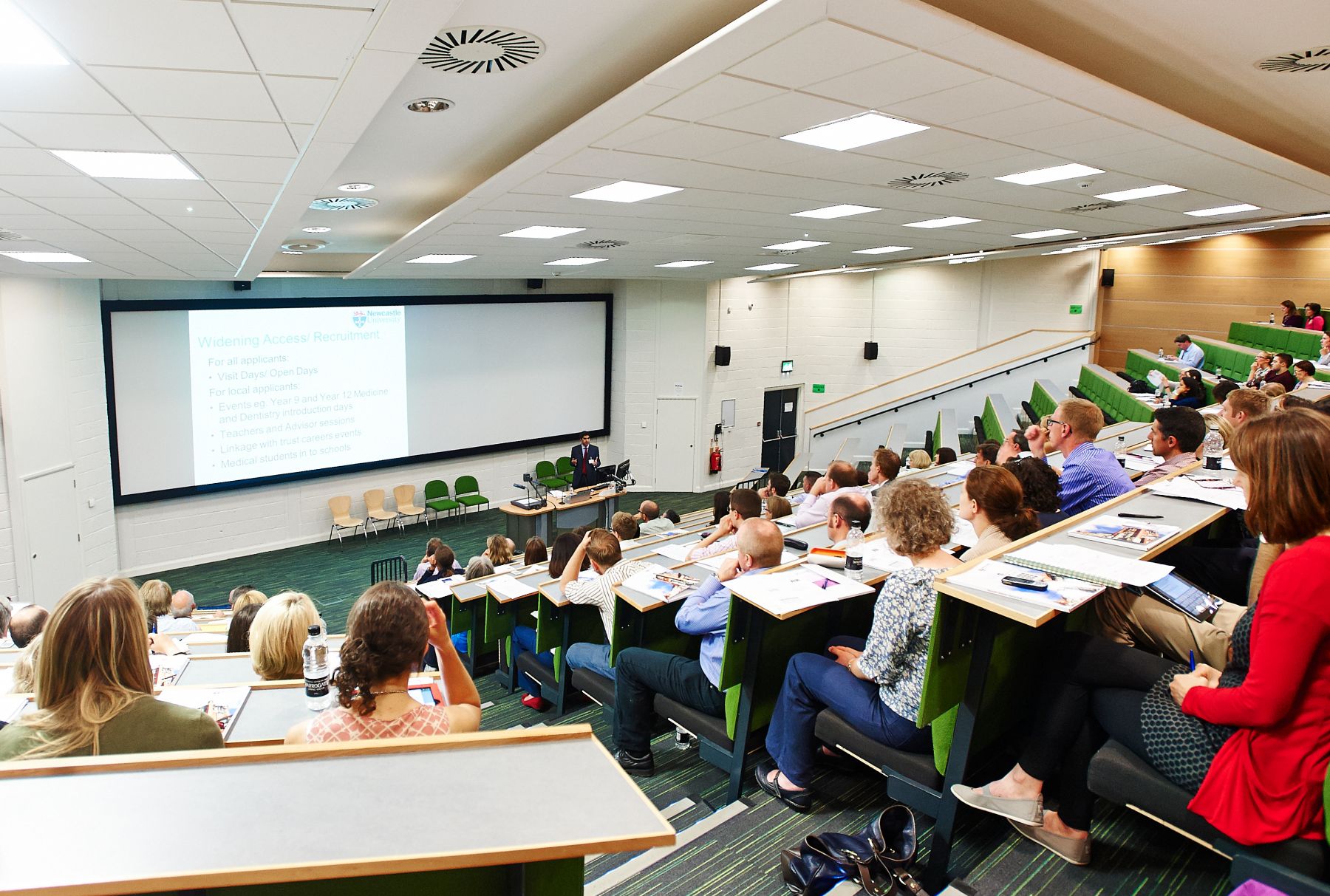Become a GP Teacher
Join Newcastle in training the next generation of doctors.
Teaching Opportunities
Newcastle Medical School already work with over 200 GP practices across the region who play a key role in delivering the MBBS programme. But with our new curriculum and increasing student numbers, there are now even more opportunities to teach right across the course.
We provide GP teachers with a full programme of education and development and support them through our team of GP lecturers. These are experienced local GPs who oversee teaching across the region.
We are always interested to hear from any GPs who are thinking of joining our team. For more information on teaching opportunities and remuneration download the guide to Teaching Programme 2025-2026
Dr Kym Merritt is Recruitment Lead for General Practice
Year 1
Pairs of students will be expected to spend 2 full days (usually from 10am to 4pm) in the same GP practice, experiencing a wide range of activities and shadowing different members of the primary care team.
We hope that these placements will deepen the students' appreciation and understanding of primary care at this early stage of their training.
Year 2
Pairs of students will be expected to spend 2 full days (usually from 10am to 4pm) in the same GP practice as they have had in Year 1, experiencing a wide range of activities and shadowing different members of the primary care team.
We hope that these placements will deepen the students' appreciation and understanding of primary care at this early stage of their training.
Year 3
Third year students spend a full academic year in the same practice, giving you a chance to get to know a small group of students (usually 4) really well.
Until December, students attend most Tuesday or Thursday mornings as they build the foundations of their clinical practice through a series of cases. From January until May, they attend for a full day on most Tuesdays or Thursdays as they work through a series of modules. Students will have some facilitated group sessions on specific days which link to their learning outcomes- this will be the first week of each new module after Christmas. They will not attend the practice on these days. A comprehensive Teacher Study Guide supports each session.
Year 4
In their 4th year, students undertake a Longitudinal Integrated Clerkship (LIC) which includes one session a week in General Practice. Students attend in pairs or fours and follow a panel of patients through the year.
From September until March students attend on a Wednesday or Friday morning. This has been designed to allow practices to teach both Year 3 and Year 4 students.
Year 5
These placements will enable our final year medical students to spend more time in General practice than before and will comprise of 2 Assistantships in General Practice. Assistantship 1, which lasts for 3 weeks, will consist of parallel and joint surgeries in GP practices where students further develop their history taking, examination and management skills. Assistantship 2 will prepare our students to become Foundation doctors. Throughout the 4 week Assistantship, students will work towards 'supported surgeries' where they will become more independent in assessing and managing patients. In both Assistantships, students will attend the practice for 4 days each week. They will have 1 day each week of face to face teaching which is organised outside of the Practice.
Accelerated programme
GP tutors are central to the delivery of the Accelerated MBBS programme. These graduate entry students do an extended 1st year in which they cover the content of the first 2 years of the MBBS degree programme.
They engage with a greater proportion of self-directed learning than the 1st and 2nd year students on the 5 year programme.
The delivery of teaching uses a problem first, case-led approach. The GP tutors facilitate the learning and our generalist experience is vital. It ensures the learning is at the right level and to contextualise the learning for the students.
Please contact Andrew Chaytor for more information.
Medical Education Research - General Practice
Dr Hugh Alberti is subdean for primary and community care. He leads a team of GP trainees and clinical teaching fellows. They develop educational initiatives, research projects and supervise students and trainees doing a master's degree or doctorate.
